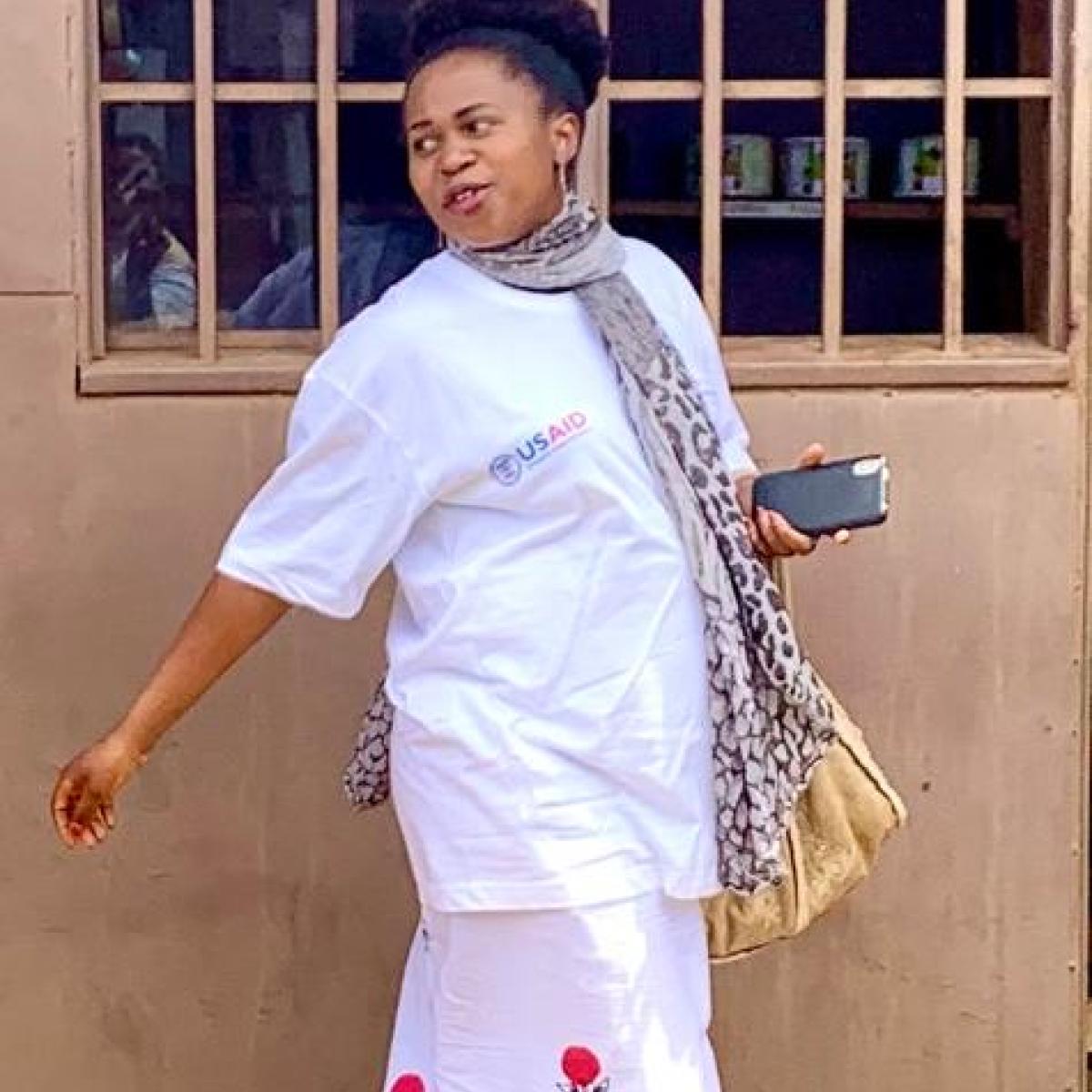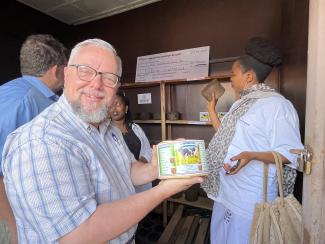Burundian Shark Tank
“Farmers had to come to me to buy my product. Now I have a motorbike, I can deliver my products to them. I want to sell to other provinces, but I won’t stop there. I’m not done."
When you are in her presence, you feel like you’re talking to a CEO of a large company. Celine Uwimana is determined, convincing and focused. She tells her story, and immediately shows you the next steps, laying down her plan for sustainable growth and wealth creation.
Back in 2018, while still at Ngozi University, Celine saw that the cows in her community were not producing much milk, and that some of her neighbors - notably children - appeared to be undernourished. As she looked further into this issue, she learned of the alarming rates of malnutrition and stunting in her community. According to the Standardized Monitoring and Assessment of Relief and Transitions survey that was conducted in 2022 in Burundi, six out 18 provinces of the country have thresholds above the standard five percent for global acute malnutrition. Data from 2020 shows that one in every two children under five years of age continue to be affected by stunting (also known as chronic malnutrition). The consequences can be dire. Malnourished children are susceptible to all sorts of serious diseases, such as malaria, and more at risk of dying of such illnesses because they cannot take the treatment: they are simply not getting enough food for their bodies to take the medicine. In these northern parts of Burundi, children would drink plenty of cow’s milk to grow well and strong, but milk was becoming scarce.
Motivated to find a solution to the weak dairy value chain, Celine started researching. “I went to a center where they had internet and looked online to see what could help cows make more milk. I found that something called the licking blocks could work. The licking blocks give cows vitamins and minerals, and feed them better, so cows can produce better milk, and more of it,” Celine explains how she came up with the idea for her business. Nobody in her community was supplementing the feed for cows. Celine set out to change that.
Using the information from the internet, Celine researched some more and taught herself about the design, mechanics and ingredients for building quality licking blocks for cows. She created a pilot licking block for testing.
“At the beginning, I didn’t know where I was going with this,” she admits with a smile. The business idea grew as her knowledge of quality cattle feed deepened. In other parts of the country, farmers could buy licking blocks. She learned from their experiences, and improved her product. “My blocks are different, they deliver more vitamins. It takes a cow about two weeks to finish one block, and then the farmer can milk that cow more often, and get more milk each time,” Celine says proudly.


“Cows like the taste of my blocks. The vitamins are from around here, so they know that taste, it's a familiar one. They also digest my blocks easily,” Celine explains in simple terms the key factors that set her apart from her competition.
Celine’s licking blocks are dense: 3 kilograms, or almost 6 lbs each. Farmers can buy them from her for about $2 to $3, depending on the packaging.
At first, it was hard to convince the farmers to spend their money on licking blocks for cows. “Business was so slow. But then, Tuyage came with the business competition, and I got to be on TV. Now people know about me, and my licking blocks are flying off the shelves.”
Tuyage, which means “Let’s Talk” in Kirundi, is an activity funded by USAID and accessible in many rural communities across Burundi. At the beginning, it was designed to use media and radio to gather people around the idea of peaceful conflict resolution, and give them access to tools and information to help to start cooperatives and businesses which would lead to income generation and financial stability. Tuyage has a special focus on developing the entrepreneurial spirit of youth and women and that special focus led the team to the idea of organizing a reality radio competition that would be similar to the famous Shark Tank TV show. “Nd’Umu DG“ (meaning “I am a CEO”) was launched and it became extremely popular with Tuyage followers. During the first season of the show Celine competed and earned a spot among the top three finalists.
“You would not know it, really. When you talk to Celine, she acts like she won first place. She’s so driven, she will grow this business much further,” says the Tuyage activity Chief of Party, Grace Fleur Francine Uwitonze with a big, proud smile. Grace is responsible for the management and implementation of the Tuyage activity and she knows these businesswomen and their companies better than most people. “Tuyage ends soon, but there are other support systems in place that will help Celine and other businesswomen to keep going. We’ve established Networking Social, a group that exchanges ideas, opportunities, lessons learned. During the Shark Tank-style competition, we had mentors who have continued working with our winners even after the competition was over.” The ultimate goal is to see Celine and other businesswomen take off on their own, in a sustainable fashion.
As for Celine, she is ready for that next step: “Farmers had to come to me to buy my product. Now I have a motorbike, I can deliver my products to them. I want to sell to other provinces, but I won’t stop there. I’m not done. I will keep growing this business and helping everyone get better milk, more milk, so all children can grow. As I grow my business, I give people jobs. I want to go further, sell outside of Burundi, too.”
Celine is motivated by a prospect of financial freedom, but also by carving out space for women in agribusiness. Talking to DAA Mike Michener, who stopped by her store in May 2023 during his visit to Burundi, Celine advised: “Keep it going, these activities like Tuyage. We need to see more women CEOs in Burundi”.

